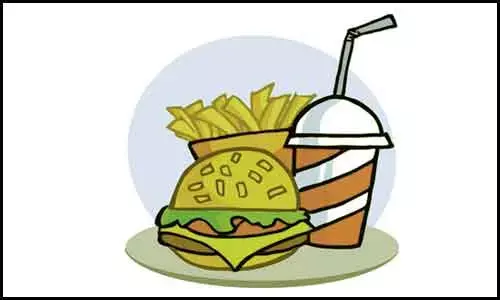- Home
- Medical news & Guidelines
- Anesthesiology
- Cardiology and CTVS
- Critical Care
- Dentistry
- Dermatology
- Diabetes and Endocrinology
- ENT
- Gastroenterology
- Medicine
- Nephrology
- Neurology
- Obstretics-Gynaecology
- Oncology
- Ophthalmology
- Orthopaedics
- Pediatrics-Neonatology
- Psychiatry
- Pulmonology
- Radiology
- Surgery
- Urology
- Laboratory Medicine
- Diet
- Nursing
- Paramedical
- Physiotherapy
- Health news
- Fact Check
- Bone Health Fact Check
- Brain Health Fact Check
- Cancer Related Fact Check
- Child Care Fact Check
- Dental and oral health fact check
- Diabetes and metabolic health fact check
- Diet and Nutrition Fact Check
- Eye and ENT Care Fact Check
- Fitness fact check
- Gut health fact check
- Heart health fact check
- Kidney health fact check
- Medical education fact check
- Men's health fact check
- Respiratory fact check
- Skin and hair care fact check
- Vaccine and Immunization fact check
- Women's health fact check
- AYUSH
- State News
- Andaman and Nicobar Islands
- Andhra Pradesh
- Arunachal Pradesh
- Assam
- Bihar
- Chandigarh
- Chattisgarh
- Dadra and Nagar Haveli
- Daman and Diu
- Delhi
- Goa
- Gujarat
- Haryana
- Himachal Pradesh
- Jammu & Kashmir
- Jharkhand
- Karnataka
- Kerala
- Ladakh
- Lakshadweep
- Madhya Pradesh
- Maharashtra
- Manipur
- Meghalaya
- Mizoram
- Nagaland
- Odisha
- Puducherry
- Punjab
- Rajasthan
- Sikkim
- Tamil Nadu
- Telangana
- Tripura
- Uttar Pradesh
- Uttrakhand
- West Bengal
- Medical Education
- Industry
Diet rich in ultra-processed fats and sugars tied to increased muscle pain: Study

Western societies are facing a clear increase in the rate of obesity and overweight which are responsible for musculoskeletal pain.
Researchers at the Universitat Rovira i Virgili (Tarragona - Spain) have observed that a diet rich in fats and sugars from ultra-processed foods (such as sweet rolls and pastries) for a six-week period increases the number of inflammatory molecules in the organism, which increases the excitability of the muscle nerves. This is known as musculoskeletal neurotransmission.
The experiments were carried out in male Swiss mice. One group was given a typical cafeteria diet, high in added sugars (for example, sweet rolls and pastries), and another was given a high-fat commercial diet for a period of six weeks. The researchers then calculated the intramuscular adipocytes and used electromyography to assess musculoskeletal neurotransmission, the response of the muscle nerves.
The mice who had consumed a cafeteria diet showed more adipocytes in the muscle tissue but the same cannot be said for the fat-rich diet. However, both groups showed an increase in neuromuscular transmission which lasted for several weeks after the diets had been terminated. The study concludes that a six-week hypercaloric diet in mice increases neurotransmission, which leads to the development of muscle pain. After this period, the mice quickly regained their normal weight although the neurotransmission parameters remained high for several weeks.
In Western societies, the rate of obesity and overweight is clearly increasing. Between 1975 and 2016 the rate of world obesity tripled. In 2030 more than 38% of the world's adult population will be overweight and 20% will be obese. Obesity and overweight are regarded as an epidemic that is associated with the development of such pathologies as diabetes, cardiovascular disease, metabolic syndrome and musculoskeletal pain.
Studies indicate that there is a strong relationship between obesity and pain. Normally, the association between overweight and musculoskeletal pain has been attributed to an increase in mechanical stress caused by the extra weight that has to be supported by the weight-bearing joints. Nevertheless, that study that has just been published in the journal Nutrients "reveals an association between pain and overweight that is independent of mechanical overload and it is probable that it involves systemic phenomena of the organism" says Manel Santafe, one of the authors of the study.
For further reference log on to:
Hina Zahid Joined Medical Dialogue in 2017 with a passion to work as a Reporter. She coordinates with various national and international journals and association and covers all the stories related to Medical guidelines, Medical Journals, rare medical surgeries as well as all the updates in the medical field. Email: editorial@medicaldialogues.in. Contact no. 011-43720751
Dr Kamal Kant Kohli-MBBS, DTCD- a chest specialist with more than 30 years of practice and a flair for writing clinical articles, Dr Kamal Kant Kohli joined Medical Dialogues as a Chief Editor of Medical News. Besides writing articles, as an editor, he proofreads and verifies all the medical content published on Medical Dialogues including those coming from journals, studies,medical conferences,guidelines etc. Email: drkohli@medicaldialogues.in. Contact no. 011-43720751


